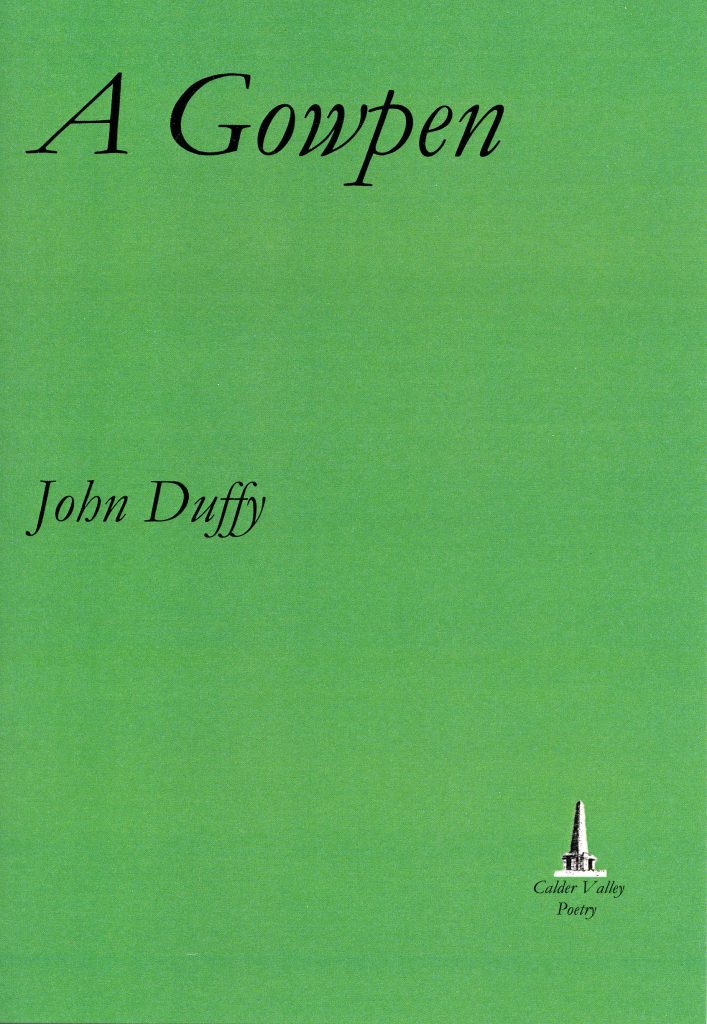A Gowpen
John Duffy
(Calder Valley Poetry, 2020); pbk: £7.00
From mating bees to Samuel Beckett to boats across the sea, John Duffy does not leave a corner of our earth untouched. Duffy’s latest collection A Gowpen is crammed with a myriad of imagery. The ‘gowpen’ of the title is Scots for the action of cupping your hands together. To take a gowpen of something is to allow others to share with you. From the outset, we are welcomed thus with charity and sincerity, a gesture repeated in many of the poems in this collection. There is a warmth in his admiration of the kindness that humanity can offer – perhaps a quality that is desperately needed in our current climate.
We carry nothing,
but our hands are never empty.(‘A Gowpen’)
In his opening poem, ‘This Morning Arrived’, Duffy tells us to take a breath, enjoy life’s smaller moments, and pay attention to nature’s details.
this morning
arrived
dancing
in lightand I
justwent
to the back door
to watch
the rain[.]
This collection does not afford grand spectacles, towering wonders of the earth but harnesses small moments that most of us may take for granted. It is a celebration of life. For example, the poem ‘In the Gardens at Versailles’ presents the grandeur of what we are expected to admire – stone statues – but Duffy is quick to turn our attention to the finer workings of these statues which ground them, what they might signify:
All these healthy young women, draped in sheets,
big hard men, heavy with allegory –
there are dozens of marble statues –
but we spend our time admiring the toes[.]
Whilst the world spins around us and proves further and further beyond our reach, why spend time idly admiring the great marbles statues when the toes beneath us, our own lives, actually hold so much enchantment? While poems in this collection are likely to be written before the start of the Covid 19 pandemic, there is something about our current events that makes it all the more relevant with my reading here. We continue to look out and hope for the marble statues beyond, but, as Duffy says, we should be appreciating what we still have. We should take a look at those finer details, get in between their toes, and find warmth in our common humanity.
In his final poem, ‘Not This Line, but the Next One’, Duffy looks towards the future. He says how despite us knowing that we can never know what the future holds, we continue
Gingerly, one by one across the chasm,
finding solid ground on what’s about to be,
our optimistic footsteps: fingers crossed.
Here, like with many of his poems in this collection, Duffy leaves us with what he believes our answer to this predicament should be: hope. We can only hope for what is to come next and stay positive in our steps. These days, while the idea of our future continues to bash our optimism, we must keep our ‘fingers crossed’ for there is no true answer in what our next step will be.
Amy Turnbull


Leave a Reply